
Church History
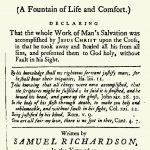
Samuel Richardson (1602-1658)
NB: This is an updated version of an earlier post on Samuel Richardson. Samuel Richardson was an English Baptist. Richardson was one of the formative leaders of the early Particular Baptists as he with eleven others signed the 1644 and the 1646 London Confessions of Faith. He seems to have been from Northamptonshire, northwest of London and “a substantial London tradesman and was certainly one of the shrewdest and most ...
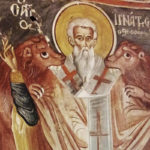
Ignatius on Christ’s True Passion (Epistle to the Smyrneans)
It is sometimes noticed that while the belief in a final restoration of all things was widespread in the first four or five centuries of the church, there is only little conclusive evidence of explicitly universalistic soteriologies in the second century. The reason for this could arguably be that eschatology in general was not very developed then. Ilaria Ramelli, in her A Larger Hope?, does find some hints, though, in ...
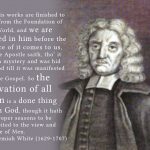
Jeremiah White: “the Salvation of all Men is a done thing with God”
Jeremiah White (1629–1707), was a 17th-century Nonconformist minister and Puritan chaplain to Oliver Cromwell. During his years as a student at the University of Cambridge he came to the conviction that Arminianism was false. White defended the doctrines of predestination, election and rebrobation, but these were understood in such a way, that the sanctification and salvation of the elect will be to the benefit of the reprobate, leading to the ...
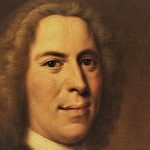
Nicolaus Zinzendorf: “By this his name all can and shall obtain life and salvation”
I've recently posted on Peter Böhler -- the Moravian bishop whose missional zeal was an important inspiration for John Wesley, though they eventually splitted over Böhler's allegedly universalistic tendencies. Reading the chapter on Continental Pietism in Robin Parry's A Larger Hope?, I was surprised to learn that the more famous Nicolaus Zinzendorf (1700-1760), bishop of the Moravian Church, seems to have shared Böhler's high eschatological hopes. Even if the evidence ...
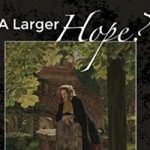
Robin Parry: The Perennial “Heresy”
Revd Dr Robin Parry is a clergyman in the Church of England and the author and editor of several books on Christian Universalism. Robin has kindly permitted me to bring an excerpt from his recently published book on universalism from the reformation to the 19th century, 'A Larger Hope?' (slightly edited): The Perennial “Heresy” One striking aspect that stands out from our explorations in this volume is the way in ...
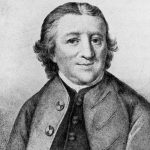
Peter Böhler (1712-1775)
Peter (or Petrus) Böhler (1712-1775) was a German Moravian bishop and missionary to England and America. Böhler took part in the first great Protestant missionary movement inaugurated by the Moravians. Having been ordained to priesthood by Nicolaus Zinzendorf in 1737, Böhler soon after traveled to London, where he met John Wesley. He later traveled to America where he served as a missionary in the colonies. Böhler became the superintendent of ...
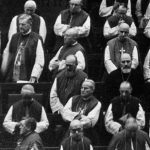
Universal Reconciliation in the Roman Catholic Church – encouraging references
Guest post by Peter Hinners. Through the centuries the Roman Catholic Church has periodically convened in councils, the first in AD 325 in Nicaea, and the last from 1962 to 1965 in Rome. This last council – the Second Vatican Council – has so influenced the modern Roman Catholic Church that its effects are still very much felt today. One of the recurring themes that runs throughout the documents produced ...
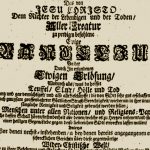
Reconciling Conflicting Convictions on the Sovereignty of God and the Freedom of Human Beings: Three Centuries (16th-18th) of Baptist Universalism
The following is a paper originally presented at a conference at International Baptist Theological Seminary (IBTS) in Amsterdam on how to reconcile conflicting convictions. The paper was also published in Baptistic Theologies (no. 1 Spring 2016). A central discussion in Protestant orthodoxy has been that between those who affirmed the sovereignty and the predestining election of God on the one hand, and those who affirmed the general scope of the ...
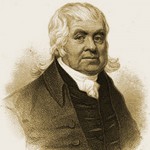
When Mr. Murray met a “young lady”
Central to James Relly, John and Judith Murray, was the idea, that it is not our faith that makes Jesus our savior, but rather that our faith is a recognition of the fact that he is our savior even (in some sense) before we believe. If he wasn't, our unbelief would not make him a liar (1 John 5:10). In his memoirs John Murray tells the story of how he ...
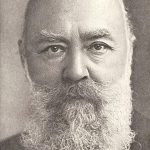
Christoph Blumhardt (1842-1919)
Christoph Friedrich Blumhardt (1842-1919) was born at Möttlingen in 1842. Christoph Blumhardt, as his father, Johann Christoph Blumhardt, became known as a mass evangelist and faith healer. The preaching of the Blumhardt's was radically oriented toward the coming kingdom of God. For a time Christoph Blumhardt was involved with politics as a Social Democrat, but came disillusioned with politics. He gradually developed the idea, that the most radical and active ...
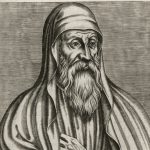
Is “Origenism” heresy? On the fifth ecumenical council in 553
It might come as a surprise to some, that the doctrine of universal restitution or "apokatastasis", let alone the belief that all human beings will be saved eventually, has never as such been condemned by any of the ancient ecumical church councils. Sometimes, however, it is claimed that the doctrine was condemned at the fifth ecumenical council at Constantinople in 553. Also read: Apocatastasis: The Heresy that Never Was ...
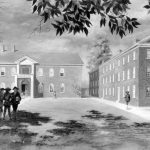
Robin A. Parry: The Baptist Universalist: Elhanan Winchester (1751–97)
In this article, based on a lecture at the Centre for Baptist History and Heritage at Regent Park College in Oxford in 2011, Robin Parry in detail describes the life and theology of the important Universal Baptist preacher and abolitionist Elhanan Winchester. From the introduction: "Baptists are not known for their universalism. With a few notable exceptions it is fair to say that Baptists have maintained the traditional mainstream rejection ...
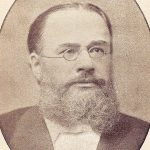
Samuel Cox (1826–1893)
Samuel Cox was an English Baptist minister and writer, born near London. At the age of fourteen he was apprenticed at the London docks, where his father was employed. Having passed the exam at Stepney College he entered London University and in 1852 he became pastor of the Baptist chapel in St. Paul's Square. From 1863 to 1888 he was a pastor at Mansfield Road Baptist chapel in Nottingham. Cox ...
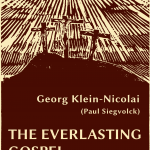
Georg Klein-Nicolai: The Everlasting Gospel (1705/1753)
The Everlasting Gospel was written by the German pastor Georg Klein-Nicolai (1671-1734) (sometimes spelled Klein-Nikolai) of Friessdorf, and published under the pseudonym “Paul Siegvolck” in 1705. The German title was Das von Jesu Christo dem Richter der Lebendigen und der Todten, aller Creatur zu predigen befohlene ewige Evangelium, etc. The English translation was first published by Christopher Sower in Germantown in 1753. It was later published by Elhanan Winchester in ...
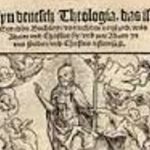
Theologia Germanica (Deutsche Theologie) (14th century)
One of the major sources of inspiration for the early Martin Luther was the anonymous work Theologia Germanica or Deutsche Theologie, probably from the 14th century. Luther, who gave the writing its name (Eyn deutsch Theologia), produced a partly edition in 1516, and a more full edition in 1518. Luther expressed his high views of the Theologia Germanica, by placing it just after the Bible and Augustine: "Next to the ...
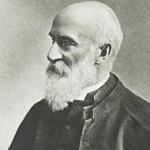
Andrew Jukes (1815-1901)
Andrew John Jukes was an English theologian and minister. Having left school, in 1832 Jukes went to Poona, India, with the East India Company. In his letters he reports to have been converted while at the hospital in India, reading Scott's Bible. In 1837 he returned to England, and entered at Trinity College, Cambridge. He became a curate in the Church of England, but became convinced of Baptist teachings. In ...
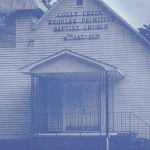
“It’s hell enough down here.” What do Primitive Baptist Universalists believe?
The Primitive Baptist Universalists are a small subdenomination of the so-called Primitive Baptists. Primitive Baptists adhere to a strictly monergistic theology much like the English Particular Baptists of the 17th and 18th centuries. But where Primitive Baptists usually believe in a limited atonement, i.e. the belief that Christ only died for a few, Primitive Baptist Universalists affirm the biblical belief, that Christ died for all (Rom. 5:18-19; 1 John 2:2) ...
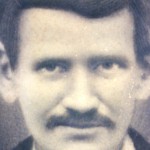
John Wesley Hanson (1823–1901)
John Wesley Hanson was an American Universalist minister and historian. He was born in Boston. In 1845 he became a minister in Wentworth, New Hampshire. In the 1860s he was chaplain to the Sixth regiment of Massachusetts volunteers. In the 1870s he went as a missionary to Britain, becoming the pastor of St. Paul's Universalist Church, Glasgow, Scotland. He then became minister of the Universalist New Covenant Church of Chicago ...
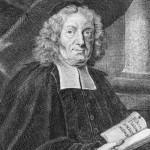
Johann Wilhelm Petersen (1649-1727)
Johann Wilhelm Petersen was a German-Danish theologian, mystic and pastor at the Lutheran Church in Hanover, and later superintendent in Lübeck and Aue. Johann Wilhelm Petersen grew up in Lübeck where he also studied theology. Together with his wife Johanna Eleonora, he developed a mystic and chiliastic form of pietism in which the belief in Universal Restitution came to play a central role. "What fruit has the doctrine of eternal ...
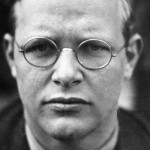
Dietrich Bonhoeffer (1906–1945)
Dietrich Bonhoeffer was a German Lutheran pastor, theologian, anti-Nazi dissident, and founding member of the Confessing Church. In his second dissertation Act and Being he argued that "not all roads appear blocked to the eschatology of apocatastasis.” In his Sanctorum Communio, Bonhoeffer made the stronger claim: "The strongest reason for accepting the idea of apocatastasis would seem to me that all Christians must be aware of having brought sin into ...

John Murray (1741-1815)
John Murray was the founder of the Universalist denomination in the United States. He was born in Alton, Hampshire in England. His father was an Anglican and his mother a Presbyterian, both strict Calvinists. In 1770 he emigrated to America, and preached, as a Universalist minister in Good Luck, New Jersey. In 1774 he settled at Gloucester, Massachusetts, and established a congregation out of a Rellyite study group. In 1793 ...
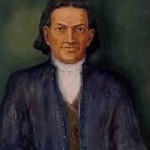
Alexander Mack (1679-1735)
Alexander Mack was the leader and first minister of the Schwarzenau Brethren (or German Baptists) in Schwarzenau, Germany. Mack founded the Brethren along with seven other Radical Pietists in Schwarzenau in 1708. The Schwarzenau Brethren held to the rejection of any coercion in religion, infant baptism, and saw the New Testament as their only Rule of Faith. Mack was a Universalist and pacifist. Mack expressed a belief that after the ...
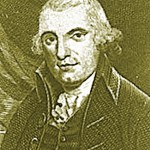
Elhanan Winchester (1751-1797)
Elhanan Winchester was born in Massachusetts, USA, in 1751. He was raised in a Congrationalist setting but after a conversion experience he joined a Free Will (General) Baptist church in which he became a preacher. Winchester seems to gradually have become convinced of a High Calvinist theology in the vein of John Gill, and, after renouncing Arminianism, Winchester became a minister in a Calvinistic (Particular) Baptist church, first in Bellingham ...
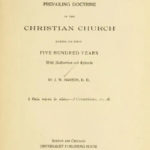
J.W. Hanson: Universalism The Prevailing Doctrine Of The Christian Church During Its First Five Hundred Years (1899)
In this classic study from 1899 J.W. Hanson went in detail with the belief in universal salvation in early Christianity. According to Hanson, universal salvation was the prevailing doctrine of the early Church. Many of Hanson's claims has been affirmed by later studies. In his book Hanson concluded that: (1) During the First Century the primitive Christians did not dwell on matters of eschatology, but devoted their attention to apologetics; ...
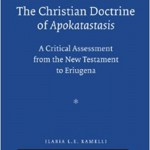
Ilaria Ramelli: The Christian Doctrine of Apokatastasis
The belief in universal salvation is as old as Christianity itself. In this extensive work of scholarly literature Dr. Ilaria Ramelli goes into detail with the classical doctrine of universal restitution (apokatastasis) as it is found from the New Testament until the middle ages. "The doctrine of apokatastasis, as is found, from the New Testament to Eriugena, in many Christian texts and Patristic authors, is a Christian doctrine and is ...
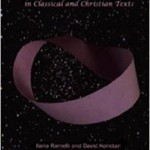
Ramelli & Konstan: Terms for Eternity: Aiônios and Aïdios in Classical and Christian Texts
An important element in the argument for biblical universalism is that the words translated "eternal", "eternity" or "forever" in traditional translations do not, in fact, mean eternity or eternal in the sense of endless duration, but "age" or "age-enduring". This new scholarly study explains in detail how this works. “Apart from the Platonic philosophical vocabulary, which is specific to few authors, aiónios does not mean “eternal”; it acquires this meaning ...
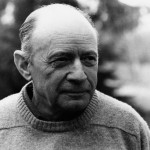
Jacques Ellul (1912-1994)
Jacques Ellul (1912 – 1994) was a French philosopher, law professor, sociologist, lay theologian, and Christian anarchist. Ellul was a longtime Professor of History and the Sociology of Institutions on the Faculty of Law and Economic Sciences at the University of Bordeaux. In his book What I Believe, Jacques Ellul writes: "I am convinced that all the works of humankind will be reintegrated in the work of God, and that each ...
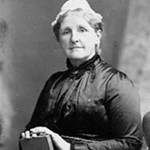
Hannah Whitall Smith (1832-1911)
Hannah Tatum Whitall Smith (1832-1911) was a lay speaker and author in the Holiness movement in the United States and the Higher Life movement in the United Kingdom of Great Britain and Ireland. She was also active in the Women's suffrage movement and the Temperance movement. In her book The Unselfishness of God and How I Discovered It she explains how she came to embrace the belief in the final ...
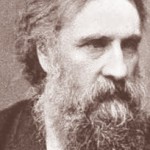
George MacDonald: Love Thy Neighbour (1867)
George MacDonald (1824–1905) was a Scottish author, poet, and Congregationalist minister. He was a pioneer in the field of fantasy literature and the mentor of Lewis Carroll and C.S. Lewis. The following is a sermon from Unspoken Sermons (1867). Thou shalt love thy neighbor as thyself. - Matthew 22:39. The original here quoted by our Lord is to be found in the words of God to Moses, (Leviticus 19:18) "Thou ...
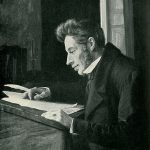
Søren Kierkegaard (1813-1855): “If the others are going to hell, then I am going along with them.”
"I do not pretend to be better than others. Therefore what the old Bishop once said to me is not true--namely, that I spoke as if the others were going to hell. No, if I can be said to speak at all of going to hell then I am saying something like this: If the others are going to hell, then I am going along with them. But I do ...
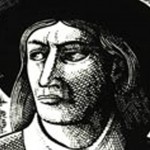
Gerrard Winstanley (1609–1676)
Gerrard Winstanley was an English Protestant religious reformer, philosopher, and political activist during The Protectorate of Oliver Cromwell. Winstanley was one of the founders of the English group known as the True Levellers or Diggers. "Christ Jesus will deliver all mankind out of bondage. This I see to be a truth by testimony of Scripture, as God is pleased to teach me. But this mystery of God is not to ...
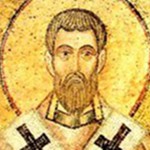
Gregory of Nyssa (335-395 AD)
Gregory of Nyssa, also known as Gregory Nyssen (Greek: Γρηγόριος Νύσσης; c. 335 – c. 395), was bishop of Nyssa from 372 to 376 and from 378 until his death. He is venerated as a saint in Roman Catholicism, Eastern Orthodoxy, Oriental Orthodoxy, Lutheranism, and Anglicanism. Gregory, his brother Basil of Caesarea, and Gregory of Nazianzus are collectively known as the Cappadocian Fathers (Wikipedia). Gregory affirmed that in the end ...
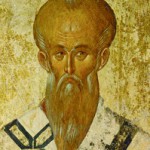
Clement of Alexandria (150-215 AD)
Titus Flavius Clemens (Greek: Κλήμης ὁ Ἀλεξανδρεύς; c. 150 – c. 215), known as Clement of Alexandria to distinguish him from the earlier Clement of Rome, was a Christian theologian who taught at the Catechetical School of Alexandria. “For all things are ordered both universally and in particular by the Lord of the universe, with a view to the salvation of the universe. But needful corrections, by the goodness of ...

Anthology: “All Shall Be Well”
In this anthology edited by Gregory MacDonald, a variety of scholars present historical examples of the Christian belief in universal salvation. From the description of the book at amazon.com: "Universalism runs like a slender thread through the history of Christian theology. It has always been a minority report and has often been regarded as heresy, but it has proven to be a surprisingly resilient "idea." Over the centuries Christian universalism, ...
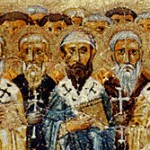
Church Fathers on salvation
"The mass of men (Christians) say there is to be an end to punishment and to those who are punished." — St. Basil the Great "There are very many in our day, who though not denying the Holy Scriptures, do not believe in endless torments." — Augustine (354-430 A.D.) "For the wicked there are punishments, not perpetural, however, lest the immortality prepared for them should be a disadvantage, but they ...
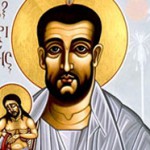
Origen (184-253 AD): "God will be “all in all”"
Origen (184-253) was a scholar and early Christian theologian who was born and spent the first half of his career in Alexandria. He was a prolific writer in multiple branches of theology, including textual criticism, biblical exegesis and hermeneutics, philosophical theology, preaching, and spirituality. "when the Son is said to be subjected to the Father the perfect restoration of the entire creation is announced, so when his enemies are said ...